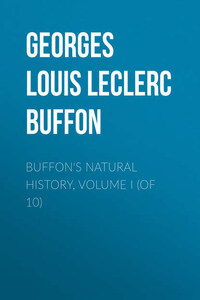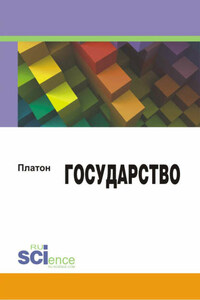We should certainly be guilty of a gross absurdity if, in an age like the present, we were to enter into an elaborate discussion on the advantages to be derived from the study of Natural History; the ancients recommended it as useful, instructive, and entertaining; and the moderns have so far pursued and cultivated this first of sciences, that it is now admitted to be the source of universal instruction and knowledge; where every active mind may find subjects to amuse and delight, and the artist a never failing field to enrich his glowing imagination.
It would have been singular if, on such a subject, a number of authors had not submitted the produce of their observations and labour; many have written upon Natural Philosophy, but the Comte de Buffon stands eminently distinguished among them; he has entered into a minute investigation, and drawn numberless facts from unwearied observations far beyond any other, and this he has accomplished in a style fully accordant with the importance of his subject. Ray, Linnæus, Rheaumur, and other of his cotemporaries, deserve much credit for their classing of animals, vegetables, &c. but it was Buffon alone who entered into a description of their nature, habits, uses, and properties. In his Theory of the Earth he has displayed a wonderful ingenuity, and shewn the general order of Nature with a masterly hand, although he may be subject to some objections for preferring physical reasonings on general causes, rather than allowing aught to have arisen from supernatural agency, or the will of the Almighty. In this he has followed the example of all great philosophers, who seem unwilling to admit that the formation of any part of the Universe is beyond their comprehension.
As the works of this Author will best speak for themselves, we shall avoid unnecessary panegyric, hoping they will have received no material injury in the following translation; we shall therefore content ourselves with observing, that in our plan we have followed that adopted by the Comte himself in a latter edition, from which he exploded his long and minute treatises on anatomy and mensuration; though elegant and highly finished in themselves, they appeared to us of too abstruse and confined a nature for general estimation, and which we could not have gone into without almost doubling the expence; a circumstance we had to guard against, for the advantage of those of our readers to whom that part would have been totally uninteresting.
As to this edition, we presume it is no vain boast, that every exertion has been made to do justice to a work of such acknowledged merit. In the literary part, it has been the Proprietor's chief endeavour to preserve the spirit and accuracy of the Author, as far as could be done in translating from one language into another; and it is with gratitude he acknowledges, that those endeavours have been amply supported by the engraver; for the decorative executions of Milton will remain a lasting monument of his abilities, as long as delicacy in the arts is held in estimation.
Neither the figure of the earth, its motion, nor its external connections with the rest of the universe, pertain to our present investigation. It is the internal structure of the globe, its composition, form, and manner of existence which we purpose to examine. The general history of the earth should doubtless precede that of its productions, as a necessary study for those who wish to be acquainted with Nature in her variety of shapes, and the detail of facts relative to the life and manners of animals, or to the culture and vegetation of plants, belong not, perhaps, so much to Natural History, as to the general deductions drawn from the observations that have been made upon the different materials which compose the terrestrial globe: as the heights, depths, and inequalities of its form; the motion of the sea, the direction of mountains, the situation of rocks and quarries, the rapidity and effects of currents in the ocean, &c. This is the history of nature in its most ample extent, and these are the operations by which every other effect is influenced and produced. The theory of these effects constitutes what may be termed a primary science, upon which the exact knowledge of particular appearances as well as terrestrial substances entirely depends. This description of science may fairly be considered as appertaining to physics; but does not all physical knowledge, in which no system is admitted, form part of the History of Nature?
In a subject of great magnitude, whose relative connections are difficult to trace, and where some facts are but partially known, and others uncertain and obscure, it is more easy to form a visionary system, than to establish a rational theory; thus it is that the Theory of the Earth has only hitherto been treated in a vague and hypothetical manner; I shall therefore but slightly mention the singular notions of some authors who have written upon the subject.









